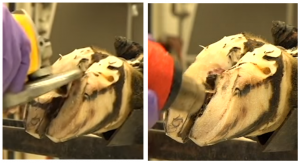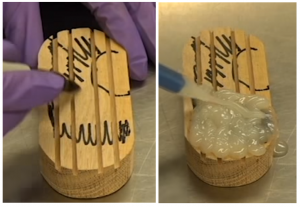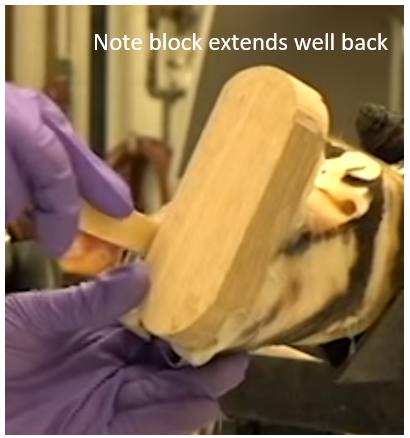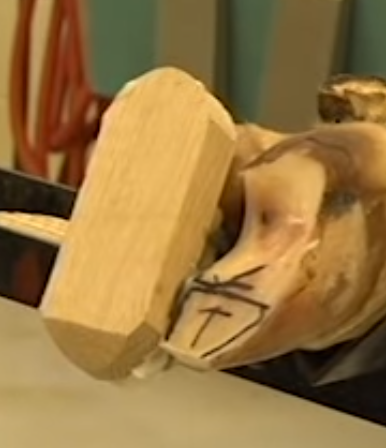Bovine Lameness and Podiatry
How to – Apply hoof block
Goal- Use the block to lift the affected foot off the ground so that the lame digit is not weight bearing and can heal. [This is not necessary if the sore digit can be kept off the ground with trimming.]
Step 1. Properly trim the healthy hoof
- The block should be perpendicular to the long axis of the leg; this means the heels have to be balanced.
Step 2. Pick the right sized block
- Plastic blocks are useful in high wear environments (eg sand). Generally thicker blocks are used.

Step 3. Roughen the foot
- Use a grinder to lightly remove the horn and debris.
Step 4. Dry hoof and block
- The foot needs to be clean and dry. Dry the hoof and block with a heat gun.

Step 5. Apply glue to block
- Two part component clue
- Apply 1/8″ glue to weight bearing areas: to the toe triangle and along the wall; avoid the flexor tuberosity area

Step 6. Lightly press block on hoof
- Too much pressure will squeeze the glue out.
- Smooth the glue around the edges with a tongue depressor
- Ensure the block extends over the heel area; if excessive it can be trimmed back

Step 7. Check positioning and fix if needed
- Walking can be improved by using a grinder to create an angle to the block (roll over)

- Ensure the other digit is protected from weight bearing and that the entire block will be weight bearing. Adjust if needed.

Step 8. Reassess in 4 -6 weeks
Kaltura version with captions: Applying a Hoof block
Resources
MN Dairy Quality Cares – Lameness, best management practices

